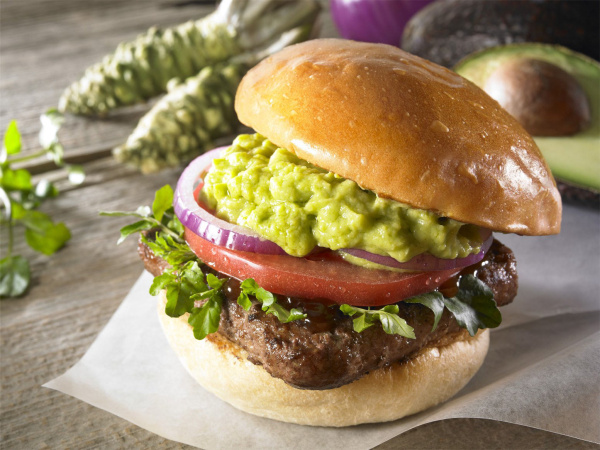If you answer “No, I already have plenty of fat in my burger from meat; but I do add avocado to my salad” – then you are not alone in this point of view. Many of us have heard about fats causing atherosclerosis, fats also cause oxidative damage. So, when we eat our burger, we try to put more lettuce leaves, spinach, and sliced tomatoes to add antioxidants to stop the oxidative process that is started by those bad fats of the burger. Animal fat (saturated fat) can damage cells on the cellular level by oxidation, therefore causing inflammation in the cells, vessels and the body. Inflammation and the CRP are recognized markers that can help to predict risks of atherosclerosis and cardiovascular diseases that lead to increased risk of mortality and morbidity.
Something we should keep in mind is that some fats can actually play a role of antioxidants, similar to fruits and vegetables. Vitamin E, which is found in some vegetable oils, is an example of antioxidant. That is why olive and walnut oil in many studies have been shown to reduce inflammation. The Royal Society of Chemistry published a new study in which scientist were investigating if avocado could reduce inflammation when eaten with hamburger. The research of the meat and avocado together is like a boxer’s fight; with on one side – meat that alone would increase the inflammation, and on the other side – avocado that would reduce inflammation if eaten alone. Who wins in this battle?
To answer this question Zhaoping Li et al. conducted a clinical trial in Los Angeles, California. Eleven healthy male participants had to consume either a hamburger that contained 250 g hamburger patty alone (ca. 436 cal and 25 g fat) or together with 68 grams of avocado flesh (an additional 114 cal and 11 g of fat for a total of 550 cal and 36 g fat.) The meals of each were ingested several days apart. Participants were required not to eat meat and avocado prior to study for 3 days and not to eat for 8 hours prior to the study. Their blood was taken prior to consuming a hamburger (and/or hamburger + avocado) and after the meal.
After each meal, the participants’ blood was taken to measure amounts of triglycerides, NFkB, IL-6 (inflammation markers), Nitric Oxide and PAT. Peripheral arterial tonometry (PAT) has been proposed as a non-invasive method to measure endothelial dysfunction and potentially identify patients with early – stage coronary artery disease. Ingesting the hamburger reduced PAT score (1.56) from baseline (2.20) compare to hamburger with avocado that could prevent this reduction (2.17) after only 2 hours. The study results suggest that avocado in the burger helped to reduce risk of coronary artery disease. IL-6 marker in the postprandial plasma found to be increased (by 70%) with burger only compare to burger with avocado, suggesting that inflammation was decreased by avocado with the burger. NFκB is one of the most important transcription factors in the induction of inflammatory processes. Stimulation of NFκB is associated with a decrease in IκB-α concentration. IkB-α in this study was used as an inverse marker of stimulation on NFkB. Burger consumption decreased IkB-α (58%), but not in the burger with avocado (131%), suggesting that avocado inhibited peripheral inflammation. Triglycerides in the blood from participants consuming both types of burgers were found to be not statistically significant. Polyphenols from fruits and vegetables have been shown many times to improve endothelial function through Nitric Oxide (NO) mediated relaxation and vasodilation. Postprandial Nitric Oxide change after consumption of avocado is still controversial according to several studies that have been done on avocado, but this study showed no significant change of NO concentration in the serum of participants.
The results of this study suggest that avocado with the burger may reverse the inflammatory effect of the meat from the burger. The higher calories in the burger with 68 g of avocado did not show higher concentration of triglycerides in the plasma and showed significant reduction of peripheral inflammation and reduce risk of coronary artery disease. Despite the fact that this study had very small participants group, this study showed significant results that are in agreement with earlier studies. So, popular practice of adding half of an avocado (healthy fats) could potentially “beat” the damage from a serving of meat (unhealthy fats) in your meal.







